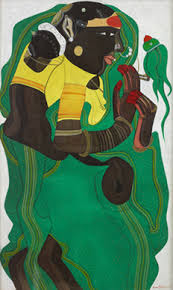
Recently, I saw a documentary, “Dinner with the President” by Sabiha Sumar & Sachithanandam Sathananthan/
Fine. At least, the General is familiar with the ideas of Mahatma Gandhi, Karl Marx and Mao Tse Tung. He has got a grasp on Bhagwad Gita too. It is Gandhiji who said the best government is the one which rules the least. “States will wither away”, Marx forecasts, towards the end of the revolution series when countries and demarcations cease to exist. “Rthm is the word”, Bhagwad Gita enlightens, and one has to align with it. Rthm is a complex expression which can be loosely translated as a variant of Dharma. It denotes the symbiotic relationship between all things in Nature. The interdependence of things. Rhtm helps you locate your (exact) position and once this is done, changes no longer become a source for concern. And finally, the Mao part. He is the one who put people above all. According to Mao, history is created by people and not by Rulers.
As Musharraf is doing justice to the colourful Pulav served by waiters wearing white hand gloves, everybody listens in rapt attention. In fact, all are awe-struck except his wife and mother. Begum Musharraf is a passive listener. The First Lady shows an element of disinterest whereas the First Mother, in contrast, cannot stop interfering. Her persona is familiar to anybody who traveled through North Indian villages. Tall, lean and bespectacled granny type with an aura of authority. Normally reserved. Such a lady speaks in chaste English,
“My son was a leader from his childhood days….his friends and classmates used to look forward to him in moments of crisis”, she says.
And the litany goes on.
Would she harbour the same fondness for her lesser sons? I am not sure. (Why doesn’t Begum Musharraf utter a word?)
Is mother’s love conditional too?
I don’t know.
“Shall I take leave of you now, my son?” the mother grasps the Presidential hands and gently leaves, escorted by orderlies.
The other diners are still in awe.
One of the prime-requisites of the “successful” leader is to instill a sense of fear among his/her followers. Sabiha Sumar and her husband are pals of General Musharraf. Still they are treating him like hot potato. I think there is an element of Hitler in every “successful” leader, be it a nation, sect, music-group or whatever else.
After her dinner with the President, Sabiha goes on to meet the religious leaders. The Mullahs are visibly uncomfortable in her presence, for she is the sophisticated type, wear salwar-cummez and her hair is open to public gaze. She asks a few ticklish questions to the clergy concerning a woman’s right to choose, the double standards practiced by the society and about freedom in general. The all-male-bearded audience gets irrevocably irritated and leaves en masse.
In my opinion, the fear element worked here also though in a subtle way. The fact that Sabiha is close to the corridors of power unnerved the Mullahs. They cannot do a fig to her but not vice-versa. She can do a couple of things to them as she has access to the Presidential ears.
A couplet from “Thirukkural” comes to my mind. Power should be treated with detachment, it says. The example given is that of a beggar receiving alms. What would be his/her state of mind when a coin is thrown to the bowl?
(Thiruvalluvar (circa 200 BC), weaver by profession authored Thirukkural)
Exhilaration? No
Pride? No
Hate? Not at all.
The person takes it as it is, presumably without any emotion. Power also should be treated that way, according to the Kural. In fact, the Indian history boasts of too many such rulers who touched power wearing gloves of detachment. They considered themselves as trustees or caretakers of people’s wealth bestowed to them by chance or destiny. In other words, they considered themselves as mere Managers of the Big Boss, answerable and accountable always.

The nearest example is that of the Travancore kings. By the way, I am not advocating a walk back into the bygone era. Even in Maharaja Swati Thirunal’s (see pic) time, an amount worth Rupees two to three lakhs was spent on buying silk every year. Burlesque, of course. I am just trying to showcase an attitude to handle power. There is a catch however that the mindset of detachment is directly coupled to several other attitudes like resisting indulgence, deriving happiness from essentials, leading a high intellectual life etc…
Do you agree with me, Sir?
Thank you for reading this far.
wwr,
Pradeep
